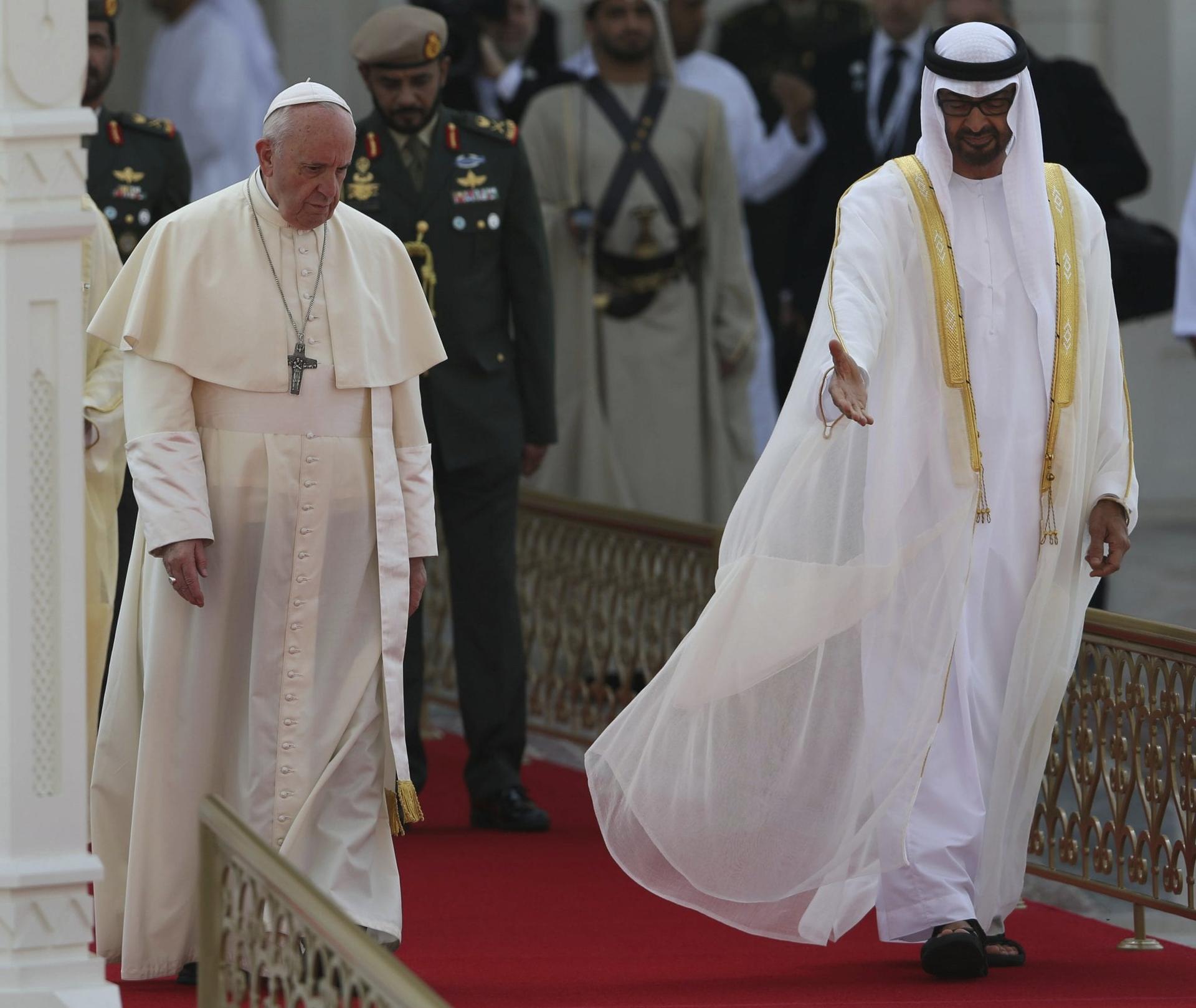ROME – One way to measure the real nature of struggles over religious freedom in the Islamic world is by the kind of person who would show up in the United Arab Emirates over the last three days, joining Pope Francis and the Grand Imam of Al-Azhar in Egypt for a massive interreligious paean to peace, love and tolerance.
There were more than 700 religious leaders on hand, and Tahir Mahmood Ashrafi, a well-known Muslim cleric from Pakistan, is a good example of the kind of crowd the event drew.
Ashrafi is known as a “liberal” cleric in his native country, the kind of religious leader who condemns extremism and stands for tolerance and acceptance and who’s been awarded a presidential honor for the defense of peace and human rights. So real are those commitments that there was recently a push in the Pakistan Ulema Council, the main body of Islamic clerics in the country, to expel him and replace him with someone more traditional.
Certainly, Ashrafi said all the right things in Abu Dhabi in terms of the event’s official talking points.
“All religious leaders today are saying that religion doesn’t have anything to do with extremism and terrorism,” he said.
“I think the UAE has achieved a great victory, because today a message is going from the UAE to the whole world that we are Muslims, Christians, Jews and other religious people, united for brotherhood of human beings against those using the name of religion for his personal cause and personal needs,” he said.
All that is encouraging, offering a classic example of the “other face” of Islam.
Yet even such an enlightened cleric as Ashrafi defended his nation’s notorious blasphemy laws, which envisions death sentences for perceived outrages against religious figures, texts and beliefs – and what’s most telling is why.
“Because of the blasphemy laws, thousands of people have been saved,” Ashrafi insisted. “If the law weren’t there, I tell you, it’s possible that I speak blasphemy you’ll kill me, or if you do it I’ll kill you.”
He cited the well-known 2012 case of a Christian girl named Rishma, who was 14 years old at the time and who suffers from a mental disability. She was arrested under the blasphemy laws after reports that she had burned pages from a Koran, and theoretically faced execution. After the case was reviewed, and in light of her condition, she was released.
“With the law, there can be negotiations,” Ashrafi said. “She was released because of the blasphemy law.”
That, in a nutshell, is the problem: A respected and clearly moderate Islamic cleric – the kind of guy, after all, happy to be seen with a pope – nevertheless is saying that in one of the world’s flagship Muslim nations, religious sensitivities are so extreme that if the civil law didn’t punish perceived acts of blasphemy, vigilante violence would be ungovernable.
Pakistan is hardly the only example of a place where enlightened religious leadership struggles to gain traction on the ground.
From where Francis was in Abu Dhabi over the last three days, for instance, it’s only about an hour by car to Saudi Arabia, where the Koran is officially the national constitution, apostasy is punishable by death and honor killings aren’t uncommon when a family member converts from Islam to another faith.
Public expressions of non-Islamic belief aren’t tolerated, and the Kingdom’s Muttawa, the religious secret police, sometimes harass and detain Christians even for gathering for worship in private homes.
In the UAE itself the same pattern exists, albeit generally in more benign form. Last year, the UAE ranked 45th among the world’s top 50 nations in terms of a lack of religious freedom according to Open Doors, a Protestant watchdog group that tracks anti-Christian persecution around the world.
Granted, Francis used the occasion to lay down a couple of markers on religious freedom, insisting that it’s more than freedom to worship but involves the right to be public about the faith one professes.
“I would like to emphasize religious freedom,” he said Monday. “Without freedom, we are no longer children [of God] but slaves.”
Some observers see the joint declaration Francis signed with Sheikh Ahmed al-Tayeb of Al-Azhar as an important text that could have important consequences, perhaps especially in Egyptian schools most influenced by Al-Azhar.
“We resolutely declare that religions must never incite war, hateful attitudes, hostility and extremism, nor must they incite violence or the shedding of blood,” it reads.
Still, that sort of rhetoric has been heard before. What we didn’t hear in the UAE was a specific papal challenge to the impediments in many Islamic societies to realizing that vision, with blasphemy laws being one clear example.
Perhaps the reality is that nothing a pope could say or do would have much impact on the social realities described by leaders such as Pakistan’s Ashrafi. However, we won’t know until it’s tried. Francis said on the plane coming back to Rome that achieving full religious freedom is a “process” – and, perhaps, a slightly more robust papal capacity to name the elephant in the room with his Muslim hosts could be part of that process.













